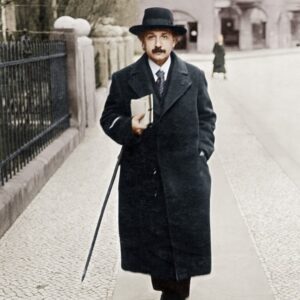IBM’s CRYSTALS May Provide Cybersecurity from Quantum Computers
New Encryption System Protects Data from Quantum Computers
Excerpts and salient points ~
+ “There are a lot of problems that cryptography is based on right now that, actually, we don’t think can be solved by normal computers,” says Vadim Lyubashevsky, a quantum-safe cryptography researcher at IBM Research–Zurich. But many of these encryption algorithms (including those that rely on multiplying two large prime numbers together) were originally developed decades ago, before researchers had developed quantum algorithms that could outperform classical ones.
Once quantum computers become functional, experts warn, they could perform calculations exponentially faster than classical computers—potentially enabling them to destroy the encryption that currently protects our data, from online banking records to personal documents on hard drives. That’s why the National Institute of Standards and Technology is already pushing researchers to look ahead to this “postquantum” era. Most recently, IBM successfully demonstrated a quantum-proof encryption method it developed.
+ [A] quantum technique called Shor’s algorithm can factor large numbers exponentially faster than classical machines. That ability means a quantum computer could crack systems like RSA, a widely used method for encrypting data.
+ In August [2019] the company announced its researchers had used its NIST submission, a system dubbed CRYSTALS (short for Cryptographic Suite for Algebraic Lattices) to successfully encrypt a magnetic-tape storage drive.
+ CRYSTALS generates its public and private keys with a category of equations called “lattice problems.” Although researchers have studied these equations since the 1980s, they have not developed either classical or quantum algorithms capable of defeating them. According to Lyubashevsky, one simple example of such a problem is to add three out of a set of five numbers together, give the sum to a friend and then ask that second party to determine which three numbers were added. “Of course, with five numbers, it’s not hard,” Lyubashevsky says. “But now imagine 1,000 numbers with 1,000 digits each, and I pick 500 of these numbers.”
+ IBM submitted CRYSTALS to the NIST contest in 2017… Its summer announcement, presented at the Second PQC Standardization Conference at the University of California, Santa Barbara, also included the news of a CRYSTALS modification that should let it encrypt cloud-based data. IBM hopes to use this improvement to render the IBM Cloud quantum-proof by 2020.
Source: SCIENTIFIC AMERICAN. Sophie Bushwick, New Encryption System Protects Data from Quantum Computers…
Content may have been edited for style and clarity.

